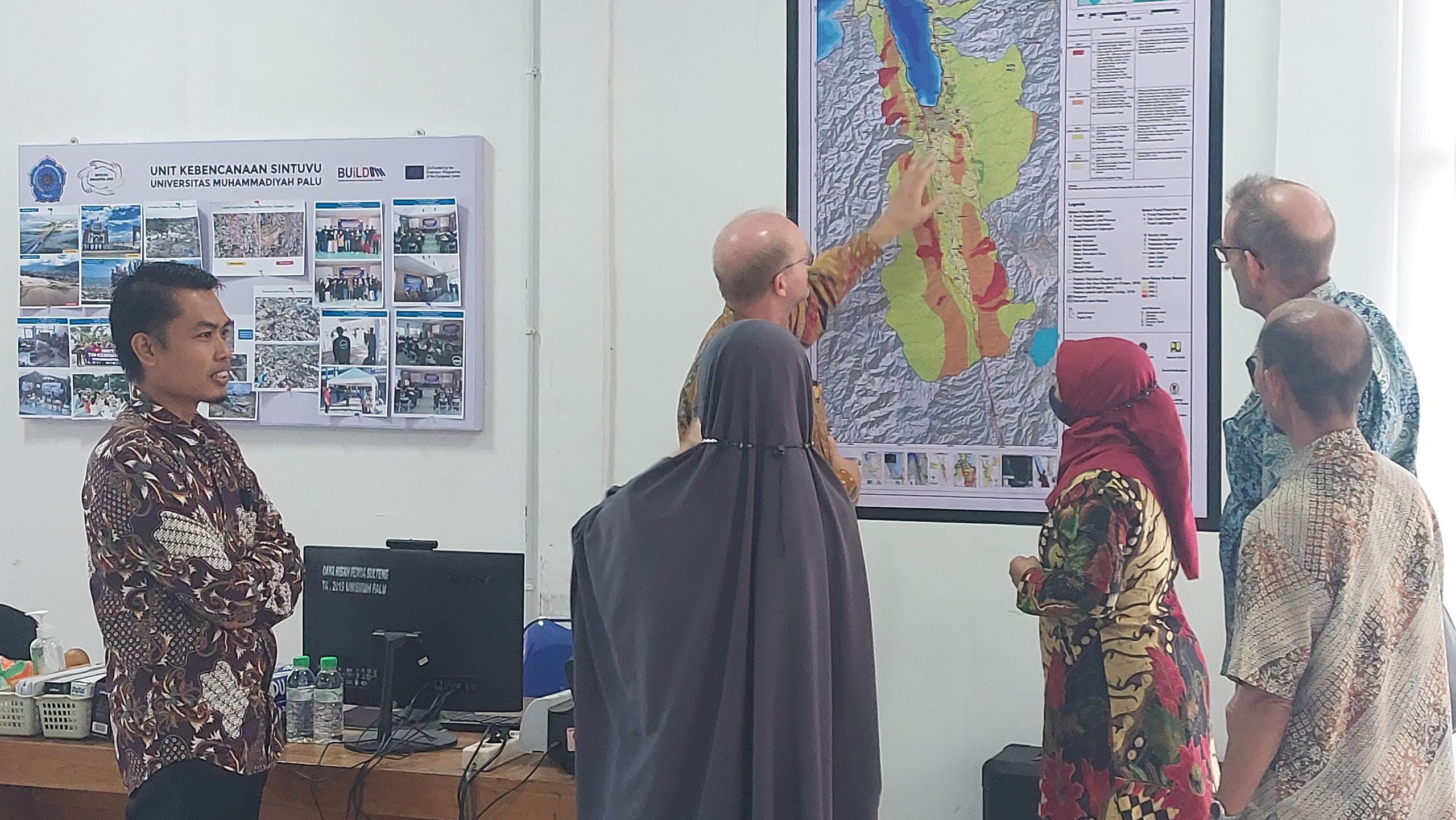WP1 – Preparation – (UOG led by the University of Gloucestershire, United Kingdom)
This part of the project involved the setting up of management structures and the official project launch. Click on the links to read more about Day 1 hosted by Universitas Islam Indonesia and Day 2 hosted by Universitas Ahmad Dahlan in Yogyakarta.
WP2.1 – Enhancing Institutional Disaster Preparedness and Response/Recovery Capability (led by the University of Gloucestershire, United Kingdom)
This stream of activity began with a disaster risk and support needs analysis for Indonesian HEIs. Based on this assessment. This led to the development of a disaster management blueprint, a set of standards for institutional governance and an institutional self-audit tool. Based on the self-audit, Indonesian partner HEIs developed institutional action plans for building and enhancing their institutional disaster resilience. You can read more about this here.
WP2.2 – Enhancing Individual Disaster Awareness and Resilience (led by Institute Polytechnic Porto, Portugal)
This stream of activity began with a needs assessment tool on disaster awareness for the three target groups. This led to the development of guidelines for workshops on disaster awareness, the development of training materials and the procurement of virtual reality training kits. Indonesian partner HEIs were trained in the use of those and in the design and implementation of a disaster awareness campaign aimed at staff, students and associated communities. You can read more about this here.
WP2.3 – Enhancing Disaster Management Curricula (led by University College Copenhagen, Denmark)
This stream of activity delivered a set of curriculum benchmarks for disaster resilience education. Based on disaster resilience curriculum benchmarks, the work package lead developed a curriculum audit tool. Indonesian partner HEIs will conduct a curriculum audit based on this tool and develop institutional action plan to embed disaster resilience education into the curriculum. The benchmarks developed are for disaster management educational curricula for Levels 4, 5, 6 and 7. Additionally, a programme of “Disaster Prevention Days” was developed for delivery to students across all subject groups. You can read more about this here.
WP2.4 – The BUiLD Disaster Resilience Network Structure (led by Universitas Ahmad Dahlan and Universitas Islam Indonesia, Indonesia)
This stream of activity created a national cross-sector network and a strategy for knowledge transfer activities. Alongside, the work package leads developed a web portal and integrated this portal with local centre websites. The WP leads initiated fundraising campaign and create a framework for the allocation of funds. This stream of activity also developed a strategy for creating local Centres of Excellence in Disaster Resilience (CoEDR). Click on the links to read more about the BUiLD Disaster Resilience Network and the CoEDRs.
WP3 – Quality Plan – (led by Hafelekar Consulting, Austria)
This part of the project is designated to quality management and involved regular external evaluation reports as well as the facilitation of an Advisory Group.
WP4 – Dissemination and Exploitation – led by President University (Indonesia)
This part of the project was designated to dissemination and exploitation activities at project and institutional level. This included a dissemination and exploitation plan beyond the implementation phase. You can read more about dissemination activities in the “News and Events” section.

